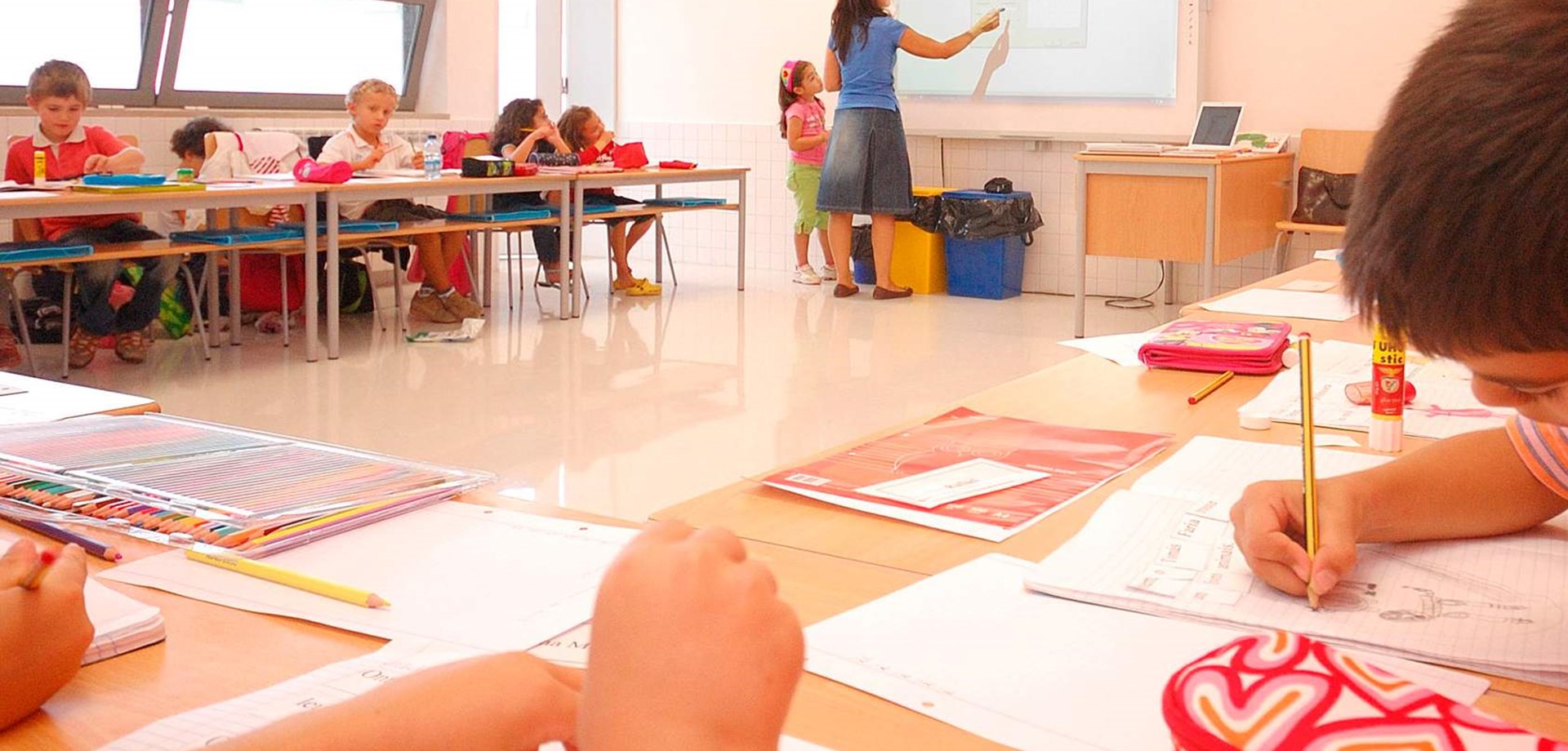Schools & Education in Portugal
16 July 2023

With its beautiful environment, warm climate and good living standards, Portugal is a popular choice for expats searching for a place in the sun.
Whether you already have children, or you’re making plans to have them in the future, Portugal is a wonderful place to raise a family. The Portuguese welcome children into their culture, so it’s not unusual to see families with children out in the evening, whether they’re enjoying dinner in a restaurant or attending a local event. As a result, children who grow up in Portugal are often mature, well-rounded individuals.
Thanks to the climate, the Portuguese lifestyle is centred on spending time outdoors. There are plenty of facilities to keep children occupied, from playgrounds and skate parks to sports courts and football pitches. Portugal is ranked above the UK and the United States in Unicef’s latest league table of child well-being outcomes, scoring particularly well in the category for mental health.
If you’re thinking about moving to Portugal with your children, learning about the education system on offer should be a key priority.
Overview
The Portuguese education system is split into three terms. These run from mid-September to mid-December; the beginning of January to the Easter break; and from April to the end of June.
The Portuguese education system is divided into four sections:
● Pre-school from ages three to six
● Primary from ages six to 15 (1º Ciclo)
● Secondary from ages 15 to 18 (2º Ciclo)
● Higher for ages 18 and over (3º Ciclo)
Attending school is compulsory for children aged between 6 and 18 years. Once your child turns 18, they can either move on to university education or apply for work.
In Portugal, the entire education system is regulated by the Portuguese Ministry of Education (DGE). This covers all age groups, from pre-schoolers to secondary school students. School groups work alongside local municipalities to allocate funding and agree on the curriculum. The Ministry for Science, Technology, and Higher Education (MCTES) plays a key role in overseeing budgets and policies for tertiary education providers in Portugal.
For expats, it can be difficult to get your head around the many different education options in Portugal. Your child’s learning path will largely depend on their age.
Different types of school in Portugal
The different types of school in Portugal include free state schools, private schools, international schools, and vocational learning pathways. If you’re searching for English-speaking schools in Portugal, international schools are a good option to consider. Lisbon is home to the International Sharing School Taguspark, widely considered as one of the best international schools in Portugal.
Although there are a range of international and private schools in Portugal, most parents in Portugal choose to send their children to the local state school, which is free of charge. Mandatory education starts at age 6, although most children start before then. As an expat, private education institutions may offer other benefits. International schools are designed to cater to the needs of expats, so they offer curriculums from all around the world, which can be taught in your child’s native language.
Not sure where to begin? We’ve mapped out all the key points to consider. Whether you need to arrange childcare for your pre-school age child, or find the best schools in Portugal for your teenager, we’re on hand to help.
Pre-school Education in Portugal
The pre-school education system Portugal provides is run by the Ministry of Labor, Solidarity, and Social Security.
Most early childcare providers, such as kindergartens and childminders, are run privately. If you want your young children to learn Portuguese, arranging for them to attend pre-school from an early age is sensible.
Children aged between 3 and 6 may attend pre-school. It is not mandatory, but it is a popular option for many working parents. There are a range of different private and public pre-schools in Portugal, and you can also access childcare through social institutions and charities. Most pre-schools offer opening hours that fit around parents’ work schedules, with many staying open until 17:00 and beyond.
f you choose to use a private pre-school, you will be required to pay tuition fees. Fees are usually means-tested, which means families who earn more will have to pay higher fees. That said, the fees for putting a child into full-time pre-school in Portugal are less than you would pay in the UK or USA, even if you are classed as a high earner. When your child reaches the age of three, you will be entitled to 25 hours per week of free childcare.
Primary Schools in Portugal
In Portugal, the primary school day usually runs from 09:00 to 15:30. Attendance at primary school is compulsory for children aged between 6 and 15. Your child’s time at primary school will be split into three cycles. The first cycle covers Grades 1 to 4, the second cycle covers Grades 5 to 6, and the third cycle covers Grades 7 to 9.


